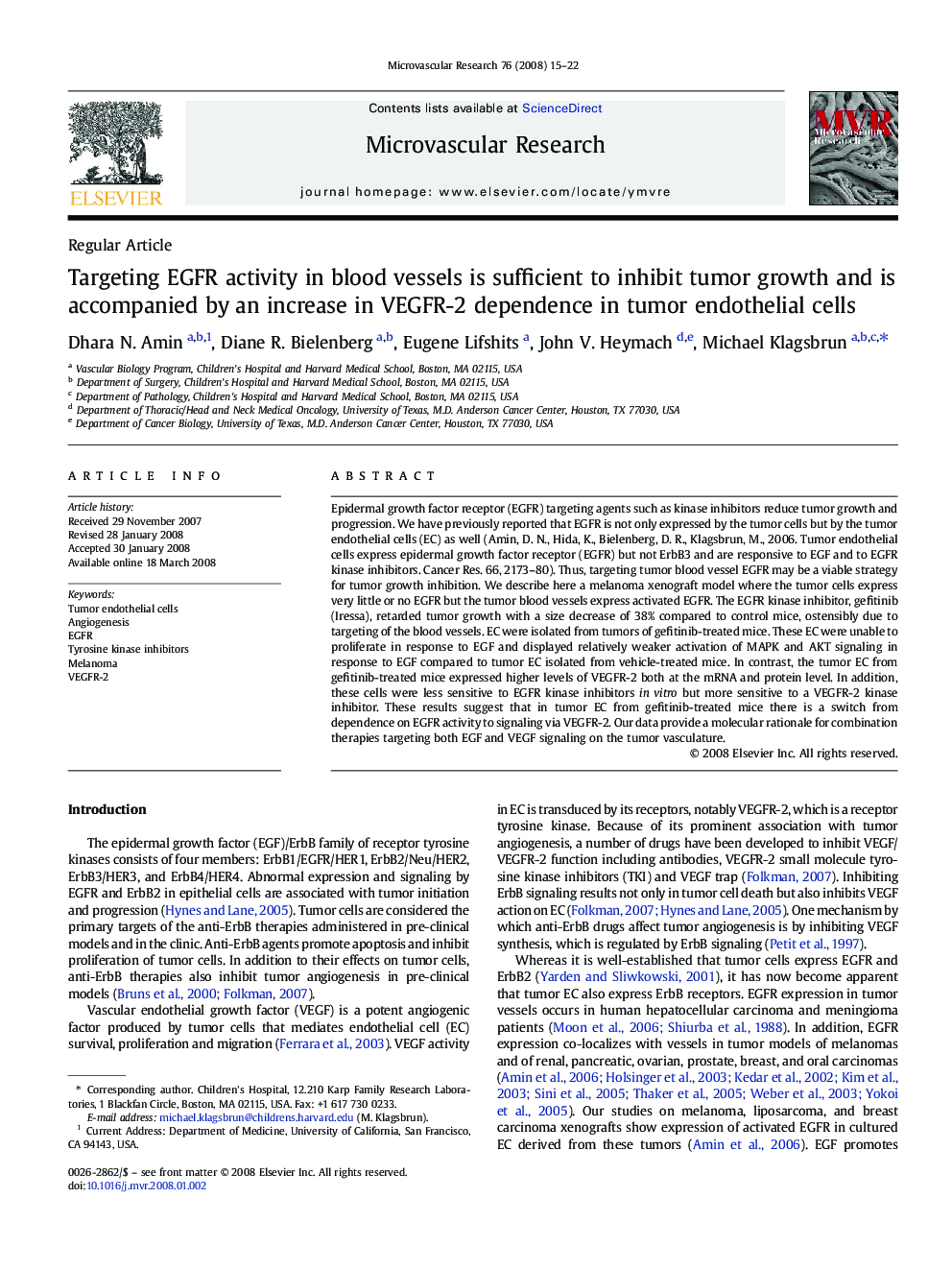| Article ID | Journal | Published Year | Pages | File Type |
|---|---|---|---|---|
| 1995338 | Microvascular Research | 2008 | 8 Pages |
Epidermal growth factor receptor (EGFR) targeting agents such as kinase inhibitors reduce tumor growth and progression. We have previously reported that EGFR is not only expressed by the tumor cells but by the tumor endothelial cells (EC) as well (Amin, D. N., Hida, K., Bielenberg, D. R., Klagsbrun, M., 2006. Tumor endothelial cells express epidermal growth factor receptor (EGFR) but not ErbB3 and are responsive to EGF and to EGFR kinase inhibitors. Cancer Res. 66, 2173–80). Thus, targeting tumor blood vessel EGFR may be a viable strategy for tumor growth inhibition. We describe here a melanoma xenograft model where the tumor cells express very little or no EGFR but the tumor blood vessels express activated EGFR. The EGFR kinase inhibitor, gefitinib (Iressa), retarded tumor growth with a size decrease of 38% compared to control mice, ostensibly due to targeting of the blood vessels. EC were isolated from tumors of gefitinib-treated mice. These EC were unable to proliferate in response to EGF and displayed relatively weaker activation of MAPK and AKT signaling in response to EGF compared to tumor EC isolated from vehicle-treated mice. In contrast, the tumor EC from gefitinib-treated mice expressed higher levels of VEGFR-2 both at the mRNA and protein level. In addition, these cells were less sensitive to EGFR kinase inhibitors in vitro but more sensitive to a VEGFR-2 kinase inhibitor. These results suggest that in tumor EC from gefitinib-treated mice there is a switch from dependence on EGFR activity to signaling via VEGFR-2. Our data provide a molecular rationale for combination therapies targeting both EGF and VEGF signaling on the tumor vasculature.
